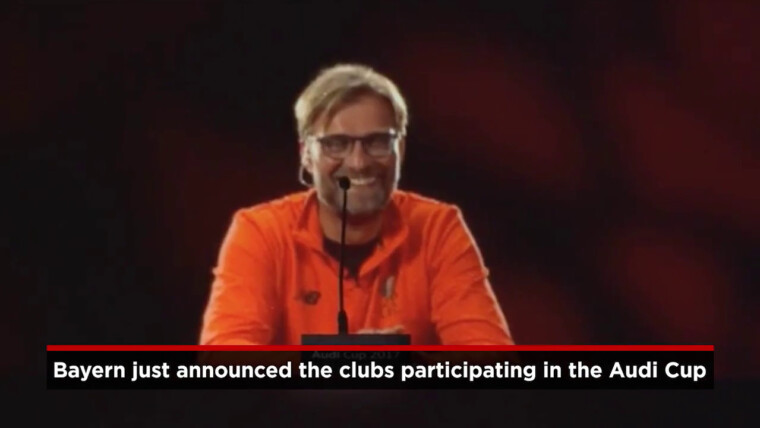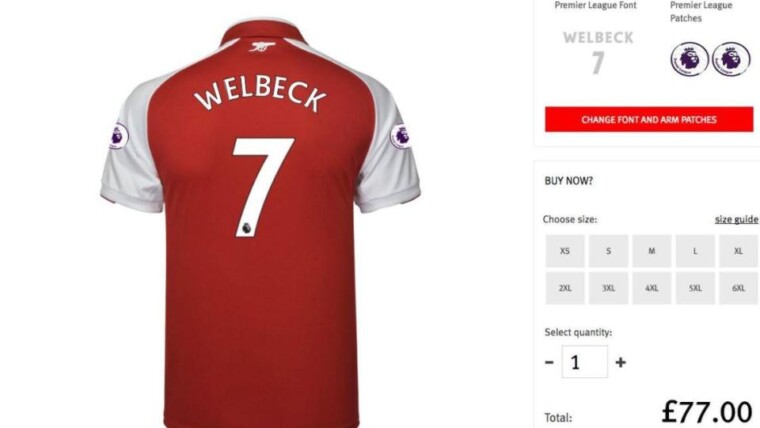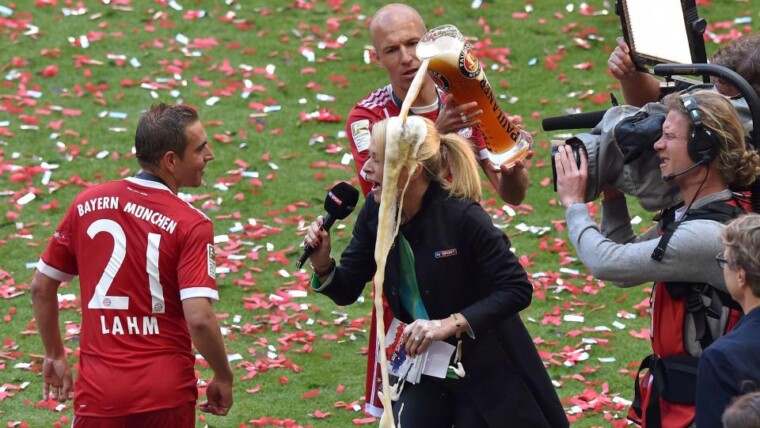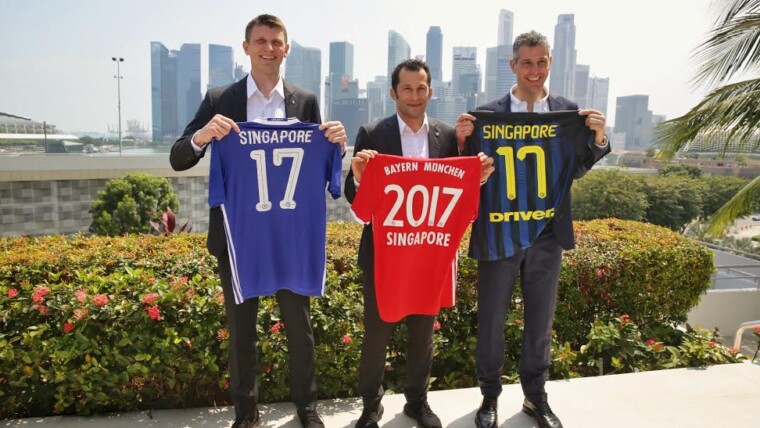Football match programmes are almost as old as the game itself. (The oldest one we still have a copy of was produced for the game between Queen’s Park and London Wanderers on October 9, 1875.) Normally they include a few welcoming remarks from the home side’s president or chairman who will address the fans and share a few thoughts with them.
Those of you who aren’t well-versed in the world of public relations and communications may be shocked to hear that the president or chairman in question is almost never the true author of such lines. This dreadful chore is normally handed over to the press officer, or one of his underlings, who pens a few words and then merely asks the chairman to have a look and okay them. Or maybe not even that.
It was different in mid-September, when Bayern Munich hosted VfB Stuttgart. The match programme – the Bayern Magazin – featured an introduction by Bayern’s chairman Karl-Heinz Rummenigge which was clearly written, or dictated, by himself. That’s because Rummenigge used the occasion to vent his anger.
He harshly attacked what he called a “shameful campaign” to question an increasing Spanish presence and influence at the club. “I read about a ‘Spanish Armada’ and a ‘Spanish invasion,'” Rummenigge wrote. “I think we all agree that such martial concepts have no place in sports.” He went on to call the criticism “provincial” and added it “contradicts values like respect, tolerance and diversity”.
Now, what was that all about?
When Bayern won the Champions League in 2013, there was one Spanish player at the club, defensive midfielder Javier Martinez. Then Bayern signed Pep Guardiola, who brought his own staff with him, the way most coaches do. These men were the Spaniards Domenec Torrent (assistant coach), Lorenzo Buenaventura (fitness coach), Carles Planchart (scout and video analyst) and Manel Estiarte (a former water polo player who now “advises the manager”, whatever that means).
Guardiola then asked the club to sign the Spanish midfielder Thiago Alcántara from Barcelona for 25 million Euros. A year later, in July 2014, Bayern spent 10 million Euros on the Spanish Under-21 international Juan Bernat, whom the Munich giants bought from Valencia. In early August, the veteran goalkeeper Pepe Reina joined Bayern from Napoli. This move set a club record, because never before had there been four foreign players from the same country in a Bayern squad.
The record lasted only a few weeks. Because later that same month, Bayern also signed the 32-year-old Xabi Alonso from Real Madrid, partly to replace Toni Kroos who’d taken the opposite route. In interviews, Bayern’s players were now almost routinely being asked what it was like with so many Spanish players and coaches in the dressing room and on the training pitch. And the press came up with the headlines Rummenigge quoted in the match programme.
Some of Rummenigge’s points were perfectly reasonable, such as his assertion that “what counts for Bayern is a player’s quality, not his nationality”. But he also issued some very strange statements that made you wonder if he really understood what the concerns were about. “The German FA, UEFA and FIFA have been actively engaged for many years to fight xenophobia and racism,” he wrote, suggesting the critics were motivated by racist leanings.
Either Rummenigge simply overshot his mark in the heat of the moment when he wrote that. Or he failed to understand that the debate had nothing whatsoever to do with where the players came from. Ever since the Bosman ruling allowed European clubs to sign as many foreigners as they want, Bayern’s squads have been full of players from all kinds of countries and neither the fans nor the press were ever critical of that.
Put differently, if Thiago Alcántara, Juan Bernat, Pepe Reina and Xabi Alonso had been Ghanese, Russian, Malaysian or Brazilian instead of Spanish, Spanish, Spanish and Spanish – well, nobody would have batted an eyelid. But journalists (and fans) must have the right to ask why a coach buys so many players from the same league – according to Marti Perarnau’s behind-the-scenes book about Pep’s first year in Germany, Guardiola had also tried to sign Eric Abidal from Barcelona – and whether it’s good to have such a strong faction at a club.
The first question is fairly easy to answer. Foreign coaches often tend to buy players they already know well, which often means from a league the coach is familiar with. When the Dutchman Huub Stevens took over at Schalke in October 1996, he found just one player from Belgium (Marc Wilmots) and two from Holland (Youri Mulder and Johan de Kock) in his squad. But only three years later, in 1999, the number had ballooned to eight (four Belgians, four Dutchmen).
Or take the Dane Frank Arnesen. Between 2005 and 2010, he was Chelsea’s Sporting Director. Then he went to Hamburg – and immediately signed or loaned out no less than five players from Chelsea (Gökhan Töre, Jacopo Sala, Michael Mancienne, Jeffrey Bruma and Slobodan Rajković).
This approach can cause problems when the coach, or the Sporting Director, has to leave and the club is suddenly stuck with many players only he wanted, or knew. When Borussia Dortmund sacked their Dutch coach Bert van Marwijk in late 2006, all the players he had signed from clubs in Holland – such as Steven Pienaar, Cedric van der Gun, Dennis Gentenaar or Matthew Amoah – were suddenly surplus to requirements. And barely a year after Arnesen had left Hamburg, only one of his six Chelsea imports was still at the club.
That, however, is a fairly normal risk for a club. Of course a coach signs players he likes, and of course it can happen that the next coach likes others players. A different, though related, problem occurs when a certain transfer policy leads to the creation of cliques among the players. Between 2007 and 2010, no less than nine Brazilian footballers played for Hertha (Raffael, André Lima, Lúcio, Gilberto, Mineiro, Rodnei, Claudiano “Kaká” Bezerra da Silva, Cicero, Cesar) There are many fans who think that the club’s relegation in 2010 had to do with a lack of team spirit. They say the South Americans stuck to themselves, which also meant they didn’t bother to learn German and couldn’t really communicate with the rest of the squad.
The idea that your team should not be divided into different camps or groups has nothing to do with racism, because those camps can be based on other things than nationality. In fact, one of the most famous cases of clique-forming in Bundesliga history – a case that was far more widely debated and covered than the current situation at Bayern – had nothing to do with where players in the clique came from. It was only about their agent.
In early 2002, the respected German daily newspaper Die Welt published an article about Kaiserslautern, then a Bundesliga club, under the headline “Friendly takeover”. It dealt with the agent Roger Wittmann and his company Rogon. Wittmann’s brother-in-law, the former international Mario Basler, joined Kaiserslautern in 1999 and that’s how Wittmann got a foot in the club’s door. Gradually, more and more of his clients were signed by Kaiserslautern and Basler tried to talk those of his team-mates who were represented by other agents into joining Rogon, too.
Four years later, after Kaiserslautern had been relegated and almost gone bankrupt, the monthly magazine Der Spiegel blamed the various cliques in the squad, and especially Wittmann’s players, for the decline of the club. “There was a time when ten footballers represented by Rogon played for Kaiserslautern,” the magazine said. “And they wielded a lot of influence.” René C. Jäggi, Kaiserslautern’s new chairman, felt it was important to get rid of the Rogon clique and gradually sold those players. (Two years later, a similar situation arose at Schalke, when seven members of the squad where under contract to Wittmann and the weekly magazine Der Stern said: “The club appears to be steered by Rogon.”)
So it’s perfectly legitimate to ask questions when a club’s transfer policy appears to be out of balance, whether that means signing conspicuously many players from one club, from one league, from one agent or from one country. In a piece for the German magazine Focus, the writer Daniel Martinez – who’s written a book about Guardiola – even called the recent influx from Spain “very dangerous”. His argument was that the club is “risking its identity” by signing so many players from abroad instead of developing their own talents. And by signing so many players specifically from Spain, Martinez adds, “the club surrenders to Guardiola”.
This may be an exaggeration, as there are enough prominent football people with strong opinions of their own at the club, such as Rummenigge and Matthias Sammer, who will stand up to Guardiola if need be. But the recent development is certainly something the club should keep a close eye on. Merely drawing attention to this does in no way contradict values like respect and tolerance. Martinez, it should be pointed out, does certainly not nurture any anti-Spanish sentiments. He is a Spaniard himself.
Other posts by Uli Hesse









